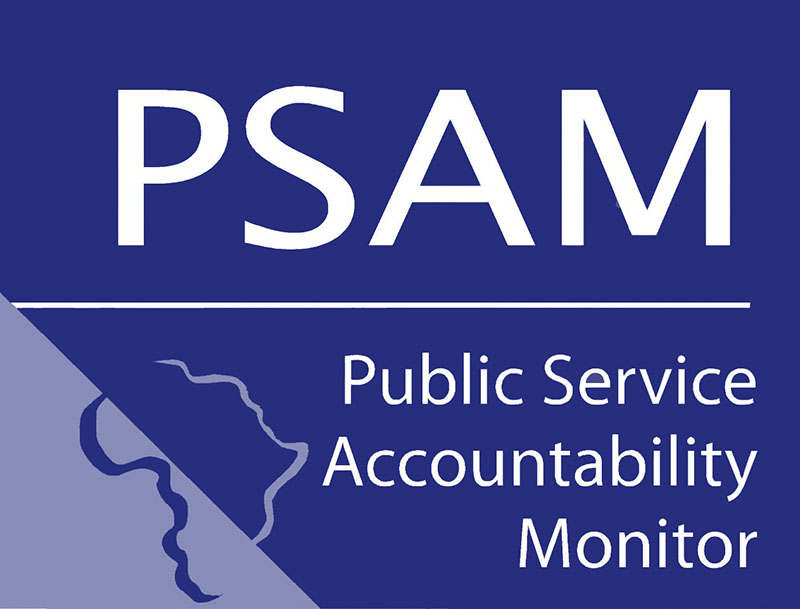Xenophobia in South Africa: What needs to be done and who should be held accountable?
Yet again, South Africa is experiencing xenophobic incidents and attacks. The Public Service Accountability Monitor (PSAM) have previously spoken out against xenophobia and called upon leaders in communities, government and law enforcement to take action to address this menace within our society
On 4 September 2019 the African National Congress (ANC) secretary general, Ace Magashule unconvincingly claimed that recent incidents were not acts of xenophobia, but rather criminality. The founding fathers of the ANC would surely disagree with Magashule’s evasive stance, mindful of the increased incidence of xenophobia in South Africa over the last two decades. The ANC spent many difficult years during apartheid depending upon other African countries and their citizens to support the ANC’s Freedom Charter objectives. It is a shame that South Africa is now widely known as a country that has repeated incidents of xenophobia, in stark contrast to other African states.
So what needs to be done to confront and reduce xenophobia in South Africa?
Certainly we need improved policing and accountability, especially within the Police, Home Affairs and Justice Department so that we can reduce criminal conduct in all its forms. Whether its drug dealing, looting, corruption or violence, those implicated be they citizens, visitors, or other passport holders must face criminal consequences for their actions.
We need leaders in communities, in government, and in political parties to educate and speak out and especially act against conduct that is unjust and unlawful. It requires leadership by example and collective effort to address a serious societal issue. Do South African citizens that visit, relocate or decide to work in other African countries realise that, if xenophobia is not confronted, there is growing likelihood of them feeling anxious and threatened in those countries, due to South Africa’s history of xenophobic violence directed at people of other nationalities?
Politicians in Parliament need to do more to fulfil the rights and responsibilities in the South African Constitution. In April 2018, the Prevention and Combating of Hate Crimes and Hate Speech Bill was finally introduced to Parliament. However the Bill’s processing through Parliament lapsed when the 5th Parliament ended its term earlier this year. The Bill needs urgent attention so that it can be processed through the 6th Parliament and become law. The Bill seeks to:
- Address the increasing number of incidents motivated by prejudices, in the form of hate crimes and hate speech, and to assist persons who are victims of such crimes or speech;
- Create the offences of hate crimes and hate speech and to put in place measures to prevent and combat these offences;
- Respond to a number of key targets in the National Development Plan, including the need for sustained campaigns against racism, sexism, homophobia and xenophobia, so that all people are and feel safe;
The PSAM calls upon Parliament to prioritise the passing into law of the Prevention and Combating of Hate Crimes and Hate Speech Bill.
The PSAM are also mindful that earlier this year the South African Cabinet adopted the National Action Plan to Combat Racism, Racial Discrimination, Xenophobia and Related Intolerance (NAP) which sets out, in clear and practical ways, what government, civil society, media, academia, business, labour, sporting and religious bodies have to do to combat and prevent discrimination and prejudice. The NAP emphasises the importance of introducing a Hate Crimes and Hate Speech law:
WHY A HATE CRIMES AND HATE SPEECH LAW?
It will help create a shared definition of hate crime among all those involved in the criminal justice system; will send a clear public message that hate crimes will not be tolerated in South Africa; will provide additional tools to investigators and prosecutors to hold hate crimes perpetrators accountable; will provide a means to monitor efforts and trends in addressing hate crimes, and will allow for effective coordination between government service providers to reduce the impact of secondary victimisation on hate crimes victims. Secondary victimisation takes place where victims are subjected to further insensitive or inappropriate behaviour or comments by police, health care officials or justice officials.
Given the recurrent and violent nature of xenophobic incidents in South Africa, the NAP needs to move beyond just words on paper, and towards actual and shared implementation.
While most people welcome increased access to social media and platforms like WhatsApp which support communication and the spread of information; these platforms also pose risks when used to rapidly spread misleading information, including material that is xenophobic and likely to incite hatred and violence towards particular groups. In this expanding social media environment, government needs to enhance its communication mechanisms and must clearly, promptly (and repeatedly it seems), state its position on xenophobia and what consequences should follow where people break the law. Amidst these challenges and risks, the NAP calls upon the media to assist, emphasizing that: The media is encouraged to play a role in the fight against racism, racial discrimination, xenophobia and related intolerance through reporting on racist, xenophobic and gender discriminatory related incidents and developing awareness-raising initiatives to sensitise the population.
South Africans and especially its leaders need to honestly acknowledge the prevalence of xenophobia. Significant and systemic corrective steps are urgently needed to address its underlying causes. The state of South Africa’s economy and unemployment rates pose significant challenges to the stability of the country. Both have been negatively impacted by corruption and state capture, often implicating those who hold power and influence in politics, the public service and big business. Until we rebuild and strengthen accountability frameworks that have been eroded, we will continue to witness xenophobic attacks, corruption, and looting that are met with inadequate levels of prosecution. This will further threaten the rule of law and the various human rights and obligations contained in the South African Constitution


